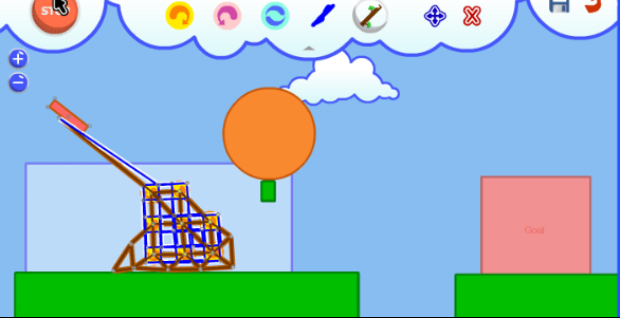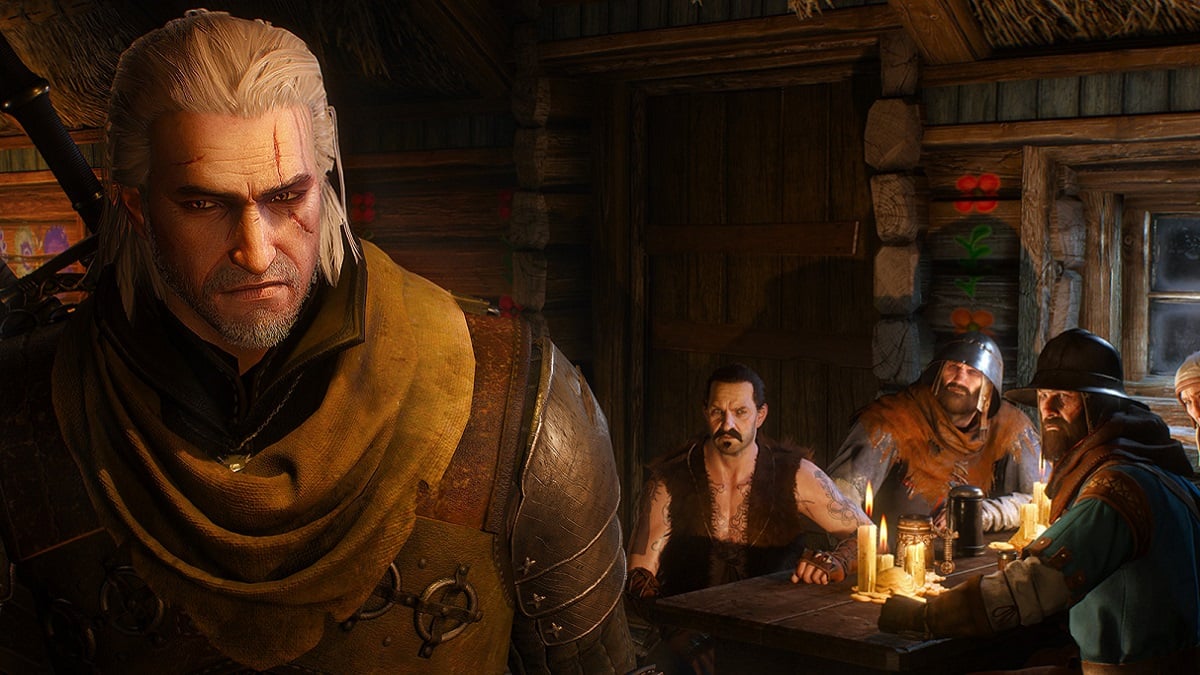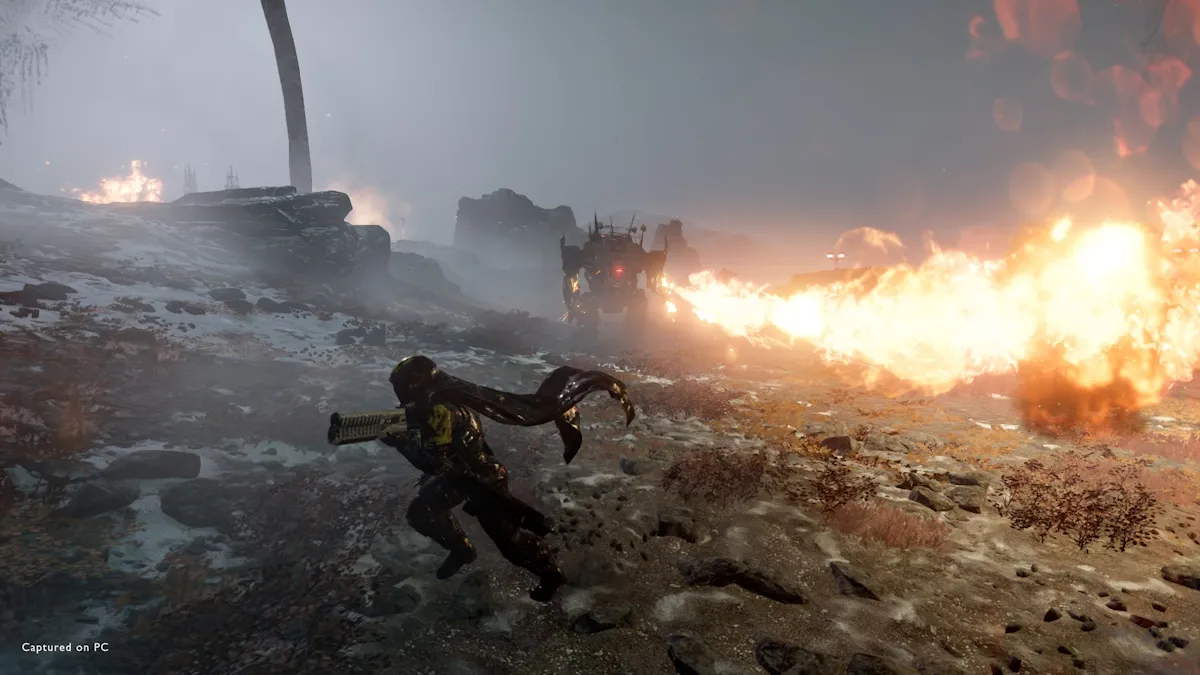is a Flash-based browser game. Colin Northway is the man who made it. He is now a full time game developer for it. It’s as simple a story as the game itself.
The Independent Games Summit of GDC Austin 09 gave Colin and his game tester/community manager, Andy Moore, half an hour to present the postmortem. The duo are a very colorful pair that had a lot of strange and entertaining things to say and show about the game, how it was made, and how it became a successful business venture.
Hit the jump for a summary of the talk, although I can’t possibly do it justice.
Colin opened up his talk by showing the audience his presentation. Instead of the normal slides, up on the projector was a platformer starring him. As he spoke, Andy played the game up on the projector. As items of discussion came up, they would also appear in-game in an often humorous way. This must be explained first in order to make later parts of the talk make some sense.
Fantastic Contraption had its beginnings in a dream of Colin’s, after which he woke up and took notes (an image of which popped up in the game; the note began with the phrase “cool shit idea”). Obviously, the game was inspired by the classic Incredible Machine, but Colin also cited World of Goo, Bridge Builder, and Armadillo Run. Most of these games make the player manipulate the environment to make an item move towards its goal, so he set out to make a game where one must manipulate the item itself.
Colin described his design philosophy as “less is more”. He wanted to make the game have as few tools and simplistic gameplay as possible, as he believes simplicity allows for more creativity from the player. He believes that sometimes, not implementing things is the best way to implement them. This seemingly contradictory statement was followed up by an example pertaining to the development of Fantastic Contraption. The original solid bar tool could be crossed over and over to make structures. But the current version of the game does not allow the player to do this. The reason for this change was that solutions became too easy if the player was given that huge degree of freedom. Again, simplicity provides much better gameplay.
As for the way that the game’s physics work, he set out to make the contraptions work according to the human mental model of how things should work. “Design what feels right instead of what is actually right,” he told everyone. He made an example of himself by attempting to do a double jump in real life. Even though it feels like it should be something that can be done in real life, it can’t.
He then showed off the first four builds of Fantastic Contraption, each step up showing some margin of improvement. These beta versions were played by Andy as Colin described the evolution. During all stages of development, he gave the game to friends and family to try out and collect information from. “I like to give people a toy and see how they play with it,” Colin said of beta testing. The things that they did (and the things they didn’t) with the early versions of the game ended up shaping it in big ways.
The inspiration behind the final build’s tutorial levels is Colin’s belief that nongamers are scared of exploration, coupled with his other belief that the average person tends to just drop a Flash game if they can’t figure something out. He explained that with other games, there is usually some incentive to stick with it, such as justifying the money spent or its physical presence in one’s home. But there is such a tiny barrier to get through to play a Flash game, it makes it just as easy to quit. This is why you have to “spoonfeed” new players through a Flash game as quickly as possible, which is what his tutorial levels try to achieve.
The next point he made about the developing process was to not be afraid of Flash. Flash games are usually seen as cheap, one-off games that have no substance, but that is not the case for them all. The combination of Flash and 3D Box actually helped him to move much more quickly through the development process; this part of the talk was mirrored in the presentation, where game-Colin jumped up a flight of stairs made up of Flash and 3D Box logos to acquire a fire flower. He then went on to stress the importance of having a community manager, if you plan to release a game like Fantastic Contraption. “It helps you keep your focus on the game,” he said. Up on the projector, people started to rain from the sky in-game, smothering Colin’s character. A second character, bearing the appearance of Andy, swooped in to help repel the “community” so that Colin could continue moving.
People like games that reward them for what they want to do individually. People also like to share what they do with others. Colin called his use of these truths “pride-based marketing”. He first discovered the value of this while the game was still in beta; everyone who played the game really enjoyed showing him how they solved each puzzle. Giving people the ability to create their own machines and share them with others through a database has helped to make the game even more popular. Someone can put the URL to their contraption in a blog or social networking service and draw hundreds of new people to it.
Colin sees the Internet as the best distribution model there is because you can “just let it do its thing”. He credited a lot of his success to sites such as StumbleUpon for spreading the word. Such easy publicity is not possible when you release a game on a console or other type of distribution service. People can find a game and share it instantly if it is made available online in a form that can be played right away.
His monetization strategy with Flash-based Internet games is to just do it. There is a stigma that people expect games like these to be free, but he urged everyone to completely forget that. “People will buy it anyway,” he said. “Just don’t set out to make a pay game. Focus on who will pay and what they would want for it.” In the case of Fantastic Contraption, a good chunk is playable for free. With the $10, a level editor and more levels are unlocked, and as he has found, a lot of people will give up their money for extra content like this. Another big thing is to point out to the consumer that the money will support an independent developer. People are moved to spend money if they know that it will go toward a good cause, such as enabling the developer to make more quality gaming experiences.
Overall, Colin’s postmortem reflected exactly what he was going for when he made Fantastic Contraption: a fun and enlightening experience. At its end, the crowd cheered him on for his great successes and great attitude towards Flash game development.




